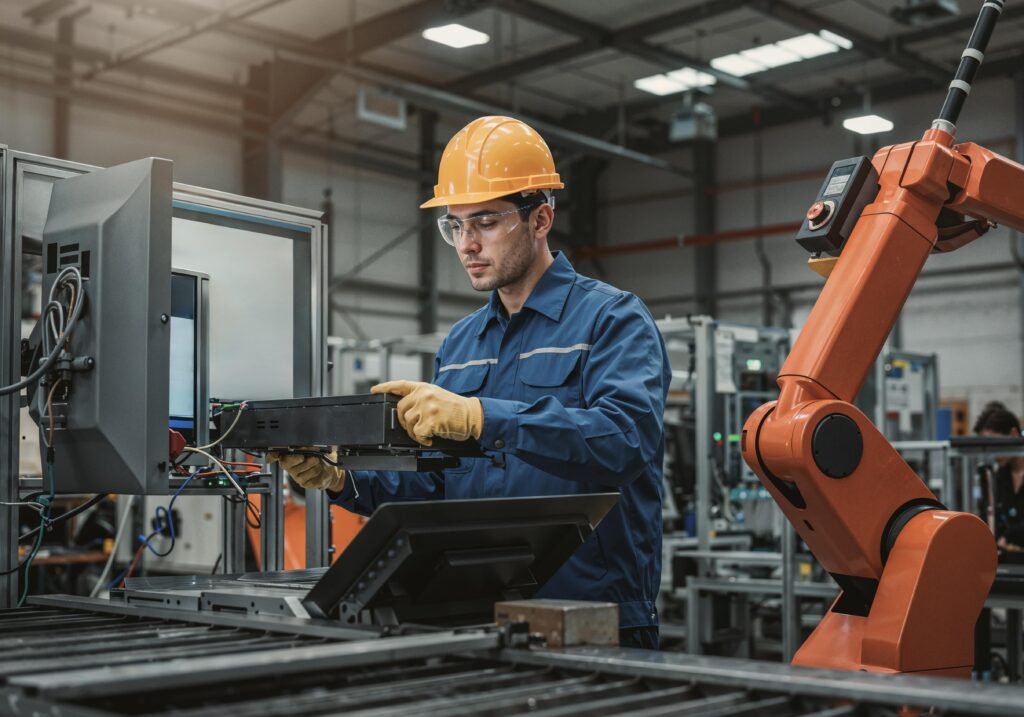
Conveyor Control: Enhancing Industrial Efficiency and Automation
Conveyor control systems are at the heart of modern industrial automation, optimizing efficiency and ensuring seamless processes across diverse industries. From manufacturing to logistics, these systems play a pivotal role in streamlining operations and maximizing productivity. This article will explore the importance of conveyor control, showcase its benefits, and highlight advancements that are reshaping industrial processes.
What Is Conveyor Control?
Conveyor control refers to the technology and systems used to manage the movement of materials on conveyor belts within industrial settings. Advanced control systems regulate speed, direction, and sequencing, ensuring materials are moved safely and efficiently. Whether it’s handling raw materials or finished goods, conveyor control is critical in industries such as automotive, food processing, and e-commerce.
The Importance of Conveyor Control
Efficient conveyor control minimizes bottlenecks, reduces downtime, and ensures accurate product handling. For instance, in the manufacturing sector, control systems allow precise coordination between assembly lines and material transport. This synchronization prevents delays and boosts production rates. Similarly, in distribution centers, conveyor control systems integrate with inventory management software to expedite order fulfillment.
Improper or outdated conveyor controls can lead to inefficiencies, product damage, and safety risks. Thus, investing in cutting-edge conveyor control solutions is not just a choice but a necessity for businesses aiming to stay competitive.
Key Benefits of Conveyor Control Systems
Implementing effective conveyor control delivers several tangible benefits:
- Improved Efficiency
Automated control systems replace manual coordination, significantly speeding up operations. With precise adjustments, businesses can meet higher throughput demands without compromising quality. - Reduced Operating Costs
Reliable conveyor control minimizes energy consumption by optimizing motor performance. Additionally, it reduces maintenance needs by mitigating wear and tear on conveyor components. - Enhanced Safety
Advanced systems are equipped with sensors and emergency stop functions to prevent accidents. These safety features ensure a secure workspace for employees handling heavy machinery. - Customization and Scalability
Modern conveyor control solutions are highly adaptable, catering to specific business requirements. Whether your operations demand faster speeds or integration with robotics, the systems can be scaled accordingly. - Data and Process Transparency
Many control solutions come with integrated monitoring tools, providing valuable data about system performance. Insights into areas such as energy usage and downtime help optimize processes further.
Advancements in Conveyor Control Technology
The technological landscape of conveyor control is continually evolving. These advancements are addressing complex industrial challenges and redefining operational standards:
1. Integration with the Internet of Things (IoT)
Smart conveyor systems now communicate via IoT sensors, generating real-time performance metrics and diagnostics. This connectivity helps businesses predict maintenance needs, preventing costly breakdowns and enhancing uptime.
2. Artificial Intelligence (AI) and Machine Learning
AI-driven systems are capable of detecting inefficiencies automatically and making adjustments in real-time. For example, predictive algorithms allow conveyor controls to adapt to sudden changes in workload, keeping operations smooth and uninterrupted.
3. Energy-Efficient Systems
New conveyor control systems are designed with energy savings in mind. These innovations optimize power usage by adjusting motor speeds and reducing idle time, making operations more environmentally friendly and cost-efficient.
4. Enhanced Human-Machine Interfaces (HMIs)
User-friendly HMIs offer intuitive controls, allowing operators to easily monitor and manage conveyor systems. These interfaces simplify troubleshooting and provide greater control over complex processes.
5. Modular Designs
Modular conveyor systems allow companies to reconfigure or expand as needed. This flexibility is particularly advantageous for businesses that experience fluctuating production requirements or anticipate future growth.
Why Choose Professional Conveyor Control Solutions?
For businesses looking to upgrade their conveyor control systems, working with professional automation providers is essential. Companies like Xtreme Automation LLC specialize in designing and implementing top-tier conveyor control solutions tailored to your operational needs. With expertise in industrial automation, they ensure you achieve optimal performance and long-term reliability.
How to Get Started
If you’re considering enhancing your conveyor systems, begin by evaluating your current operations. Identify bottlenecks and areas needing improvement. Then, consult with automation experts who can recommend customized solutions based on your unique requirements.
Boost Your Operations Today
Upgrading to advanced conveyor control systems is a strategic move that can give your business a competitive edge. By improving efficiency, reducing costs, and enhancing safety, these systems pave the way for a more streamlined and profitable operation.
Are you ready to transform your operations with cutting-edge conveyor control systems? Reach out to experts at Xtreme Automation LLC today and discover how tailored solutions can take your business to the next level.
































